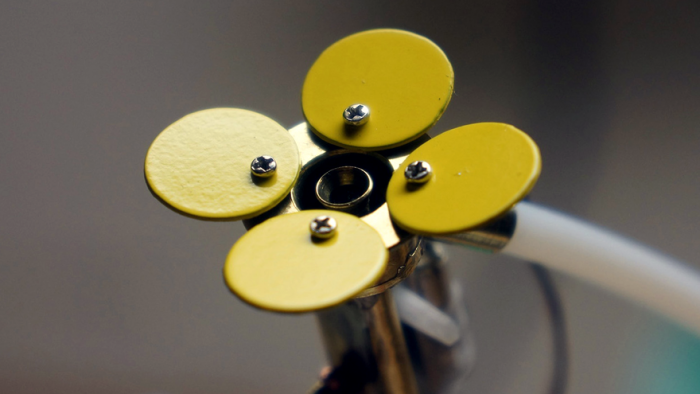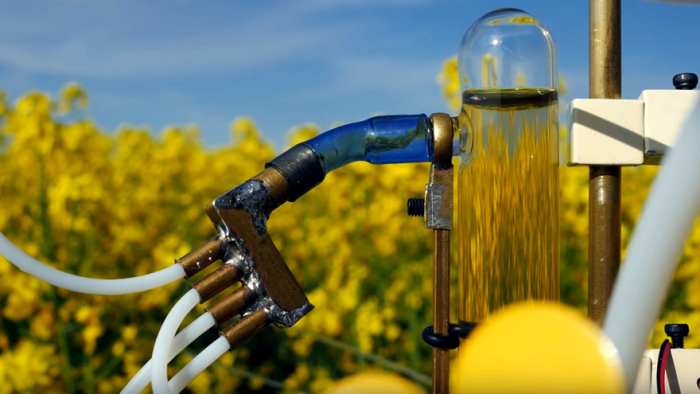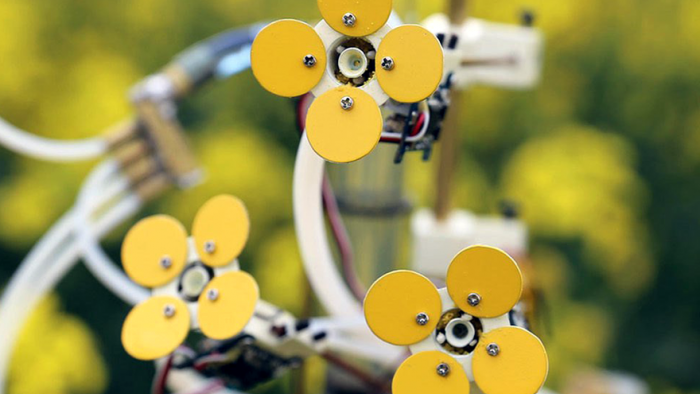Michael Candy is an industrial designer based in Brisbane, Australia. A graduate of the Queensland University of Technology, he has designed a device that can help bees carry on their important pollination work as safely as possible. It is the Synthetic Pollenizer, a mechanical device meant to remove some of the risks that threaten bee populations globally.
Integral to the reproductive life cycles of countless plants, bee pollination accounts for over a third of all food production on Earth indirectly.
Unfortunately, since the early 1990s, beekeepers have reported a drastic drop in bee culture numbers. The sudden and mysterious decline of the honey bee has been attributed to bee-killing pesticides and the disruptive effect climate change has on seasons. A world without insect pollinators would be devastating to agriculture globally and for that reason, a number of designers such as Candy are turning their attention to the plight of the bee.
The Synthetic Pollenizer combines artificial pollination with modern 3D-printing to create a pesticide-free way of pollinating and fertilising plants. These robotic petals are designed to blend in with a crop of real flowers, boosting the process by dispensing artificial nectar continuously. According to the designer, it took a number of years to perfect the design of the mechanical flowers as bees have very specific ways of identifying the right flower to land on.
“This project intervenes in real-world ecological systems using robotic flowers to integrate with the reproductive cycle of local flora. These imitations offer a manufactured nectar supplement while attaching locally harvested pollen to bees,” says the designer.
The device features a network of tubes that issue a sweet nectar onto each brightly coloured flower surface, simulating the conditions needed for the insect to be enticed. A pollen trap catches any excess pollen grains the bee might be carrying, which is then funnelled into the Synthetic Pollenizer’s phoney stamen. Though the design is still in development, Candy believes it acts as a valuable addition to the protection of bees and it has the potential to help rehabilitate areas that have lost their bee populations.










